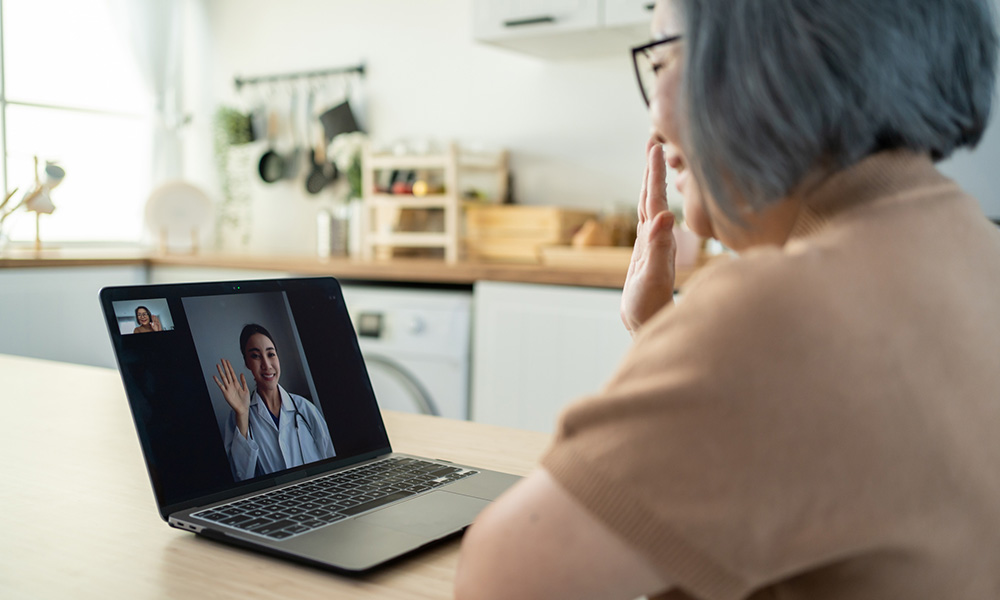
Researchers have determined people recovering from a stroke can better self-manage their rehabilitation using a virtual program.
A stroke often impacts a person’s ability to move their lower body from the hips down to the feet.
This leads to diminished quality of life and mental health in addition to increased susceptibility to falls. But now, UBC Okanagan researchers are exploring new treatment methods to help bridge the service delivery gap, and recovery outcomes, for patients after a stroke.
“Shortened length of inpatient stays and continued challenges in transitioning back to the community—including poor access to continued stroke rehabilitation services—have resulted in substantial unmet recovery needs,” says Sarah Park, master’s student with the Centre for Chronic Disease Prevention and Management (CCDPM) based at UBC Okanagan. “This is especially true for lower extremity recovery. People can struggle to regain balance, stability and gait coordination for daily life activities and even proper ambulation.”
Dr. Brodie Sakakibara, CCDPM Investigator, recently led a national team of researchers, clinicians and people with lived experiences to evaluate the feasibility of a telerehabilitation program with aims to improve lower extremity recovery poststroke.
“More people are surviving a stroke and the need for accessible rehabilitation regardless of geographic location is increasingly important,” says Dr. Sakakibara. “This program harnesses technology, the expertise of clinical therapists and the motivation of individuals to improve stroke recovery.”
For the study, more than 32 participants, all who had experienced a stroke within the past 18 months, received eight telerehabilitation sessions via videoconference with a trained physical therapist. The research team focused their efforts on improving lower body mobility through standardized exercises combined with self-management supports.
“Overall, participants saw improvements in their mobility and strength, and made noticeable progress towards their rehabilitation goals,” says co-investigator Dr. Ada Tang, an Associate Professor with the School of Rehabilitation Sciences at McMaster University. “They also gained self-management skills to empower themselves and maintain their achievements moving forward.”
While many virtual rehabilitation programs developed out of necessity during the COVID-19 pandemic, programs like this have demonstrated feasibility and increased accessibility to patients. Especially those living in rural and remote areas.
However, researchers have noted therapeutic benefits are not maintained if additional therapy is not sustained after the end of a formal program, explains Park, who was also lead author of the study. It is important to incorporate self-management skills in post-stroke rehabilitation interventions, which empower participants to continue exercising and maintain those benefits after the program ends.
“Overall, self-management programs aim to improve health outcomes by helping people adapt to their circumstances through newfound skills, which could prevent or offset some of the difficulties individuals face when discharged from care,” Park explains. “Virtual rehabilitation programs, with a level of self-management, can ultimately enhance the continuum of care for patients transitioning back into the community and help improve their overall quality of life.”
The study was published recently by the Physical Therapy and Rehabilitation Journal.